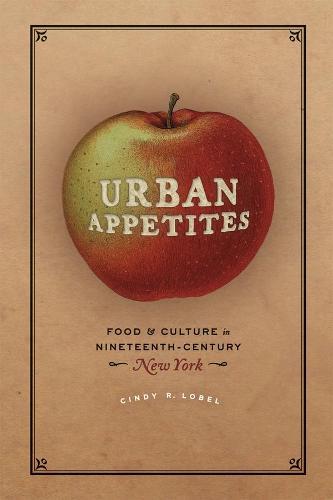Full Product Details
Author: Cindy R. Lobel
Publisher: The University of Chicago Press
Imprint: University of Chicago Press
Dimensions:
Width: 1.60cm
, Height: 0.20cm
, Length: 2.30cm
Weight: 0.539kg
ISBN: 9780226128757
ISBN 10: 022612875
Pages: 288
Publication Date: 28 April 2014
Audience:
General/trade
,
Adult education
,
General
,
Further / Higher Education
Format: Hardback
Publisher's Status: Active
Availability: Out of stock

The supplier is temporarily out of stock of this item. It will be ordered for you on backorder and shipped when it becomes available.
Reviews
Lobel's accessible cultural history takes us on a fascinating behind-the-scenes tour of New York's food system, covering everything from the provisioning of family kitchens to the emergence of the greatest restaurant scene in the world. Scholars and policymakers have recently recognized that food systems are a key to cultural and environmental sustainability, making this is an ideal time for Lobel's much-needed primer on the historic context for this essential human question. This is a must-read for all who hunger for a better understanding of how cities really work. --Owen Gutfreund Hunter College, City University of New York New York's roots as the world's greatest culinary center are firmly cemented in Cindy Lobel's wonderful survey of the dazzling dining options of the nineteenth century. Her descriptions of markets, dining rooms, restaurants, and kitchens tell us not only what people ate but where they dined and how the city's rich ethnic diversity influenced it all. --Lisa Keller Purchase College, State University of New York Lobel's fine book leads us on a fascinating tour of New York's foodways past, letting us explore the farms and markets that supplied kitchens in the city's homes and restaurants and introducing us to men and women who raised food, sold it, cooked it, and ate it. --Ann Fabian, author of The Skull Collectors: Race, Science, and America's Unburied Dead [O]ne snapshot of New York in a century that brought enormous changes in eating and food production.... Through the lens of food, the book surveys changes in the culture, demographics and politics of the city. --New York Times Lobel uncovers the 19th-century roots of New York City's claim to be the food capital of the world and its implications of diversity, abundance, and exoticism associated with the rising urban US. . . . The book's best sections cover the growing cultural expectations of urban restaurants in the rise of public culture that serviced specialized clienteles. Recommended. --Choice Part food and part urban history, Urban Appetites traces New York's simultaneous evolution into a cosmopolitan city, a commercial powerhouse, and, arguably most intriguing to Lobel, an empire of gastronomy. --Food, Culture & Society
Lobel's fine book leads us on a fascinating tour of New York's foodways past, letting us explore the farms and markets that supplied kitchens in the city's homes and restaurants and introducing us to men and women who raised food, sold it, cooked it and ate it. --Ann Fabian author of The Skull Collectors: Race, Science, and America's Unburied
Lobel's accessible cultural history takes us on a fascinating behind-the-scenes tour of New York's food system, covering everything from the provisioning of family kitchens to the emergence of the greatest restaurant scene in the world. Scholars and policymakers have recently recognized that food systems are a key to cultural and environmental sustainability, making this is an ideal time for Lobel's much-needed primer on the historic context for this essential human question. This is a must-read for all who hunger for a better understanding of how cities really work. --Owen Gutfreund Hunter College, City University of New York
Lobel's fine book leads us on a fascinating tour of New York's foodways past, letting us explore the farms and markets that supplied kitchens in the city's homes and restaurants and introducing us to men and women who raised food, sold it, cooked it, and ate it. --Ann Fabian, author of The Skull Collectors: Race, Science, and America s Unburied Dead
Author Information
Cindy R. Lobel is assistant professor of history at Lehman College.




